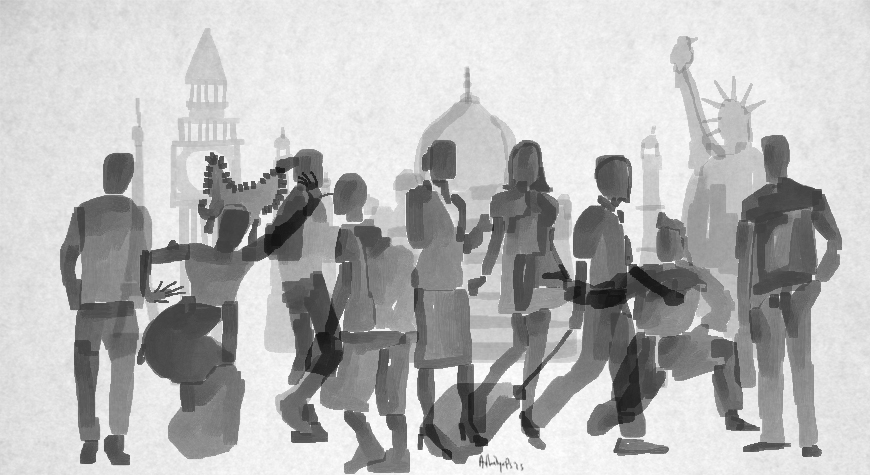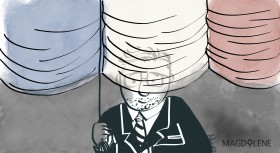I wrote this story to capture the degree of anxiety that the Indonesian students are experiencing abroad. These Indonesians went abroad to pursue a higher degree, but their future never seemed murkier after the pandemic.
In most universities, students are now taking online classes as they self-quarantine. Most of the students from China, the ground zero of the outbreak, have had to leave the country until further notice.
The situation has struck a nerve in us, as it exposes a larger issue at hand. For one the schooling mechanism will be disrupted for at least one semester, leading possible rise in costs. Many of us have limited options to return home, and, anyway, going home does not necessarily put us in a safer situation.
In India, where I am located, Indonesian students face the issues that those in other parts of the world do: uncertain accommodation, visa and permit extension issues, and unconducive environment for home-based learning.
According to the World Health Organization, India has seen 593 cases as per March 26. Prime Minister Narendra Modi has enforced the “Janta Curfew” or People Curfew since March 22, a nationwide lockdown that will last 21 days to reduce the spread of the virus among the huge population of India. Furthermore, Indian students who are residing in the dormitory are directed to leave for home and away from the dorm premises before the 22nd, leaving only foreign students in the facilities with minimized physical contacts. It remains uncertain what will happen if the foreign students are expected to leave the dorm when all international flights might be cancelled.
The Indonesian Students Association (PPI) has been in close contact with the Indonesian Mission both the Embassy in New Delhi and the Consulate in Mumbai. It is really important to be connected to the Cultural and Education Attaché to keep them updated on the number of students in India, whether they stay for a longer period or merely for an internship or short course. A special team was created to handle such issues and a first-response person-in-charge has been appointed to each state or union state all over India.
In addition to the accommodation issue, many Indonesian students are struggling with anxieties as their visa and resident permit extension remain unprocessed due to the closure of offices and universities. The attaché has been trying her best to manage all of the issues faced by the students, providing a little bit of assurance for the student. Unfortunately not all missions have a cultural and education attaché, leaving many students anxious.
And despite the spare time we have in self-quarantine, concerns over scholarship, thoughts of our families back home, and panic buying do not make for a conducive learning environment. We are trying to make the best out of the pandemic by hosting several online discussions on COVID-19 by inviting Indonesian scholars from various fields to connect and educate ourselves. Some of the speakers represent the Overseas Indonesian Students' Association Alliance. This form of solidarity and shared experience may help us maintain a sense of connectedness during this dark time.
This sense of vulnerability and the limited mobility have made us question our decision to pursue higher education abroad. None of us had ever imagined something like this would happen in our lifetime. Time seems to have stopped as the war goes on.
Still, we shall not lose faith. While living in self-isolation could feel suffocating at time, there are no limits to hopes and prayers. We should play our part as responsible citizens and scholars in reducing the spread of COVID-19 through self-quarantine and social distancing.
From one student to another, one who is struggling to make it one day at a time, here’s what you can do to close the physical distance while coping with the current uncertainty: stay in touch with others in your community, check on each other, and strengthen your network. While physically we are far, socially we are connected. Create a space to reduce the mental toll during the quarantine, and know that we are going to make it.







Comments